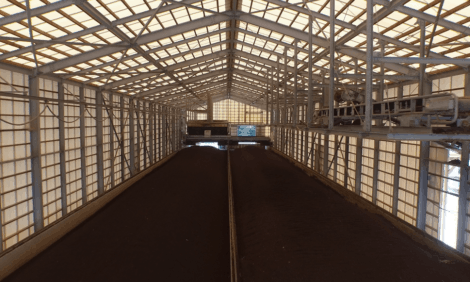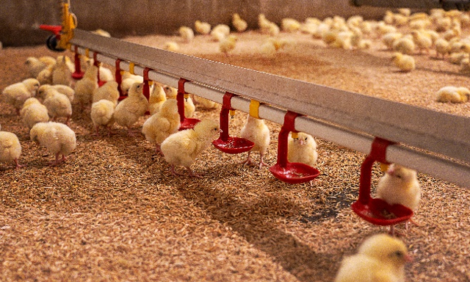



Chicken Interferon Alpha Pre-Treatment Reduces Virus Replication of Pandemic H1N1 and H5N9 Avian Influenza Viruses
New research from China offers potential for the future control of low-pathogenic avian influenza.In their paper soon to be published in Virology Journal, Haijun Jiang of the China Agricultural University in Beijing and co-authors there and at the Southeast Poultry Research Laboratory of the Agricultural Research Service in Athens, Georgia, USA, say that type I interferons, including interferon alpha (IFN-alpha), represent among the first lines of innate immune defence against influenza virus infection.
They add that, following natural infection of chickens with avian influenza virus (AIV), transcription of IFN-alpha is quickly up-regulated along with multiple other immune-related genes. Chicken IFN-alpha up-regulates a number of important anti-viral response genes and has been demonstrated to be an important cytokine to establish anti-viral immunity. However, they say, the mechanisms by which interferon inhibit virus replication in avian species remains unknown, as is the biological activity of chicken interferon in other avian species.
In their studies, Jiang and co-authors assessed the protective potential of exogenous chicken IFN-alpha applied to chicken, duck and turkey primary lung cell cultures prior to infection with the pandemic H1N1 virus (A/turkey/Virginia/SEP-4/2009) and an established avian H5N9 virus (A/turkey/Wisconsin/1968). Growth kinetics and induction of select immune response genes, including IFN-alpha and myxovirus-resistance gene I (Mx), as well as pro-inflammatory cytokines (IL-1beta and IL-6), were measured in response to chicken IFN-alpha and viral infection over time.
Their results demonstrate that pre-treatment with chicken IFN-alpha before AIV infection significantly reduced virus replication in both chicken- and turkey-origin lung cells and to a lesser degree the duck-origin cells. Virus growth was reduced by approximately 200-fold in chicken and turkey cells and 30-fold in duck cells after 48 hours of incubation. Interferon treatment also significantly decreased the interferon and pro-inflammatory response during viral infection. In general, infection with the H1N1 virus resulted in an attenuated interferon and pro-inflammatory response in these cell lines, compared to the H5N9 virus.
Taken together, the researchers conclude their studies show that chicken IFN-alpha reduces virus replication, lower host innate immune response following infection, and is biologically active in other avian species. Chicken IFN-alpha might provide an additional option in the prevention and therapy against low pathogenic avian influenza virus infection, the paper's authors added.
Reference
Jiang H., H. Yang and D.R. Kapczynski. 2011. Chicken interferon alpha pretreatment reduces virus replication of pandemic H1N1 and H5N9 avian influenza viruses in lung cell cultures from different avian species. Virology Journal, 8:447. doi:10.1186/1743-422X-8-447
Further Reading
| - | You can view the full report (as a provisional PDF) by clicking here. |
Further Reading
| - | You can visit the Avian Flu page by clicking here. |
October 2011








